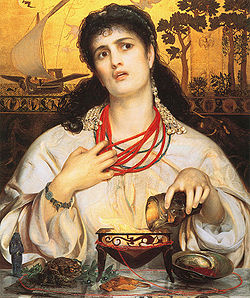
The dramatic episodes in which Greek mythology character Medea plays a role have ensured that she remains vividly represented in popular culture. Titles are ordered chronologically.

The dramatic episodes in which Greek mythology character Medea plays a role have ensured that she remains vividly represented in popular culture. Titles are ordered chronologically.

| | This section needs expansion. You can help by adding missing information. (May 2019) |